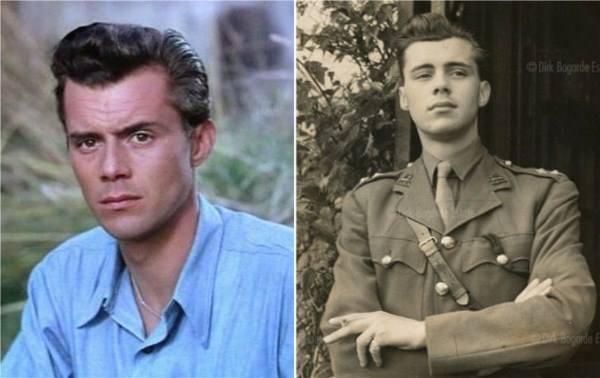
Bogarde served in the Second World War, being commissioned into the Queen's Royal Regiment in 1943. He reached the rank of captain and served in both the European and Pacific theatres, principally as an intelligence officer.
Taylor Downing's book "Spies in the Sky" tells of his work with a specialist unit interpreting aerial photo-reconnaissance information, before moving to Normandy with Canadian forces. Bogarde claimed to have been one of the first Allied officers in April 1945 to reach the Bergen-Belsen concentration camp in Germany, an experience that had the most profound effect on him and about which he found it difficult to speak for many years afterward.
As John Carey has summed up with regard to John Coldstream's authorised biography however, "it is virtually impossible that he (Bogarde) saw Belsen or any other camp. Things he overheard or read seem to have entered his imagination and been mistaken for lived experience."
Coldstream's analysis seems to conclude that this was indeed the case.
Nonetheless, the horror and revulsion at the cruelty and inhumanity that he claimed to have witnessed still left him with a deep-seated hostility towards Germany; in the late-1980s he wrote that he would disembark from a lift rather than ride with a German of his generation.
Nevertheless, three of his more memorable film roles were as Germans, one of them as a former SS officer in The Night Porter (1974).